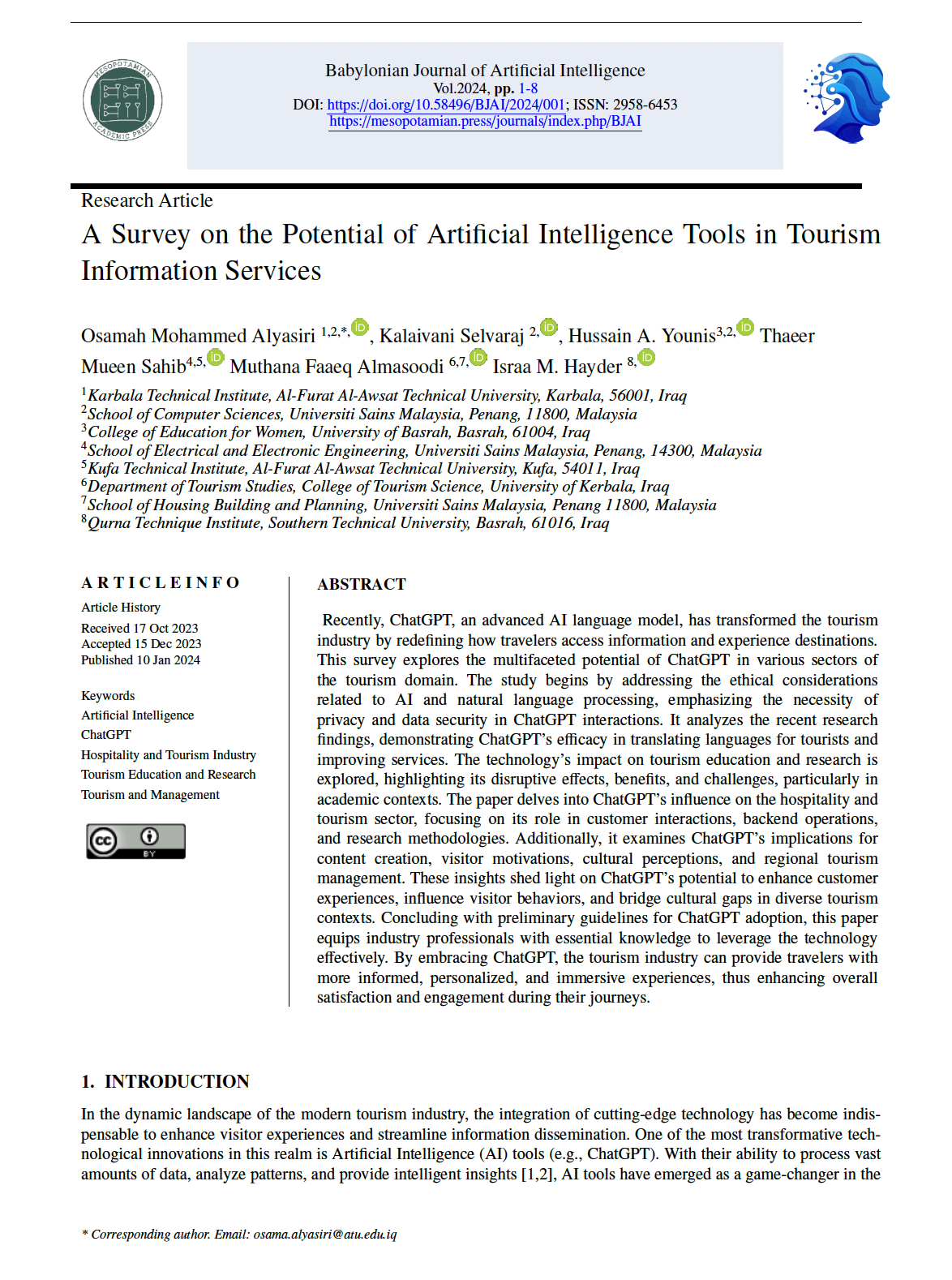A Survey on the Potential of Artificial Intelligence Tools in Tourism Information Services
Main Article Content
Abstract
Recently, ChatGPT, an advanced AI language model, has transformed the tourism industry by redefining how travelers access information and experience destinations. This survey explores the multifaceted potential of ChatGPT in various sectors of the tourism domain. The study begins by addressing the ethical considerations related to AI and natural language processing, emphasizing the necessity of privacy and data security in ChatGPT interactions. It analyzes the recent research findings, demonstrating ChatGPT’s efficacy in translating languages for tourists and improving services. The technology’s impact on tourism education and research is explored, highlighting its disruptive effects, benefits, and challenges, particularly in academic contexts. The paper delves into ChatGPT’s influence on the hospitality and tourism sector, focusing on its role in customer interactions, backend operations, and research methodologies. Additionally, it examines ChatGPT’s implications for content creation, visitor motivations, cultural perceptions, and regional tourism management. These insights shed light on ChatGPT’s potential to enhance customer experiences, influence visitor behaviors, and bridge cultural gaps in diverse tourism contexts. Concluding with preliminary guidelines for ChatGPT adoption, this paper equips industry professionals with essential knowledge to leverage the technology effectively. By embracing ChatGPT, the tourism industry can provide travelers with more informed, personalized, and immersive experiences, thus enhancing overall satisfaction and engagement during their journeys.
